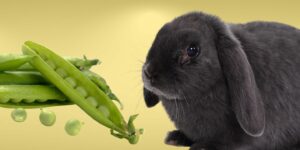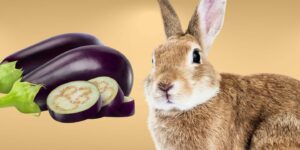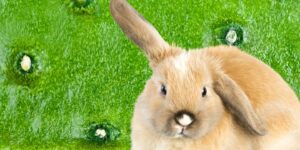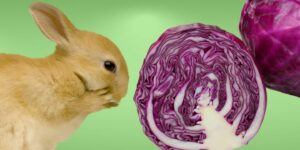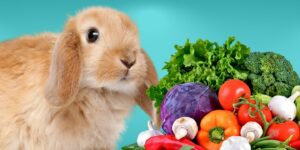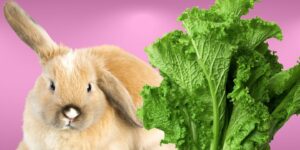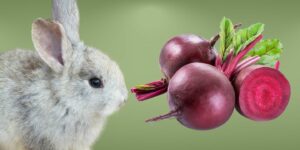Rabbits are herbivorous animals that require a diet high in fiber and low in protein, fat, and carbohydrates to maintain their health. Many people who keep rabbits as pets wonder if they can feed their furry friends squash, as it is a popular vegetable that is commonly grown in gardens. In short, rabbits can eat squash in moderation. However, it is important to understand their dietary requirements and feed them a balanced diet to maintain their overall health.
Understanding rabbits' dietary requirements
The importance of a balanced diet for rabbits
Rabbits need a diet that is rich in fiber, such as hay, as it aids digestion, helps in wearing down their teeth, and reduces the risk of obesity. Additionally, a rabbit's diet should include fresh vegetables, leafy greens, and water to keep them hydrated. Feeding your rabbit a diet that is too high in carbohydrates or sugars, such as from too many treats, can lead to digestive problems and other health issues.
Can rabbits eat squash?
Nutritional benefits of squash for rabbits
Squash is high in vitamins, minerals, and antioxidants that could improve a rabbit's overall health. In addition, squash is low in calories, making it a suitable treat for rabbits when fed in moderation.
Potential risks of feeding squash to rabbits
Feeding excessive squash to rabbits can lead to digestive issues, such as diarrhea, as squash is high in carbohydrates. Furthermore, some squashes may be bitter or contain harmful compounds, leading to health problems.
What types of squash can rabbits eat?
Rabbits can eat a variety of squashes, following the same rule: always in moderation. Here are a few types of squash that rabbits can safely eat:
Zucchini
Nutritional benefits
Zucchini is rich in vitamins and minerals, such as vitamin C, vitamin A, and potassium.
How to prepare zucchini for rabbits
Wash zucchini thoroughly and cut it into small pieces before feeding it to your rabbit.
Pumpkin
Nutritional benefits
Pumpkin is high in fiber, potassium, and vitamin A, supporting your rabbit's digestion and overall health.
How to prepare pumpkin for rabbits
Wash and remove the skin and seeds from the pumpkin, cutting it into small pieces for your rabbit to enjoy.
Butternut squash
Nutritional benefits
Butternut squash is rich in vitamins A and C, promoting eye and skin health.
How to prepare butternut squash for rabbits
Peel the skin, remove the seeds, and cut into small pieces before giving it to your rabbit.
How much squash can rabbits eat?
The importance of moderation
Rabbits should only be given a small amount of squash as a treat, as it is high in carbohydrates and can cause digestive issues if fed in large quantities. A good rule of thumb is to only offer your rabbit a piece of squash that is the size of their paw.
Signs of overfeeding squash to rabbits
If your rabbit is experiencing diarrhea or digestive issues, it is a sign that they may be consuming too much squash, and you should reduce or eliminate this treat from their diet.
How to gradually introduce squash to a rabbit's diet
Start by offering a small piece of squash to your rabbit and observe how they react. If they enjoy it and do not show any signs of digestive upset, you can gradually increase the amount.
Safety precautions when feeding squash to rabbits
Choosing organic squash
Opt for organic squash when possible to reduce your rabbit's exposure to harmful chemicals and pesticides.
Washing and preparing squash properly
Wash squash thoroughly before feeding it to your rabbit. Remove skin, seeds, and any rotten parts.
Storing squash to maintain freshness
Keep squash in a cool, dark place or the refrigerator to maintain freshness and prevent spoilage.
Alternatives to squash for rabbits
Other vegetables that can be fed to rabbits
Rabbits can enjoy a variety of vegetables, including leafy greens, carrots, bell peppers, and celery.
Fruits as treats for rabbits
In moderation, rabbits can enjoy fruits, such as apples, berries, and bananas. Nonetheless, keep in mind that fruits should be limited, as they are high in sugar.
Conclusion
The role of squash in a rabbit's diet
In conclusion, rabbits can eat squash as a treat, but it should only be fed to them in moderation. It is essential to offer your rabbit a small amount of squash and avoid feeding them any bitter or pesticide-treated varieties.
Ensuring a healthy and balanced diet for your rabbit
By following these guidelines, you can safely incorporate squash into your rabbit's diet. Remember to provide your rabbit with a balanced diet, including hay, fresh vegetables, water, and occasional treats, to ensure their overall health and wellbeing.



